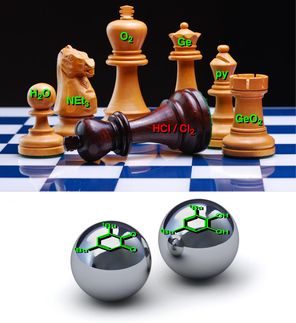Liberalised Chinese Economy Creates Radical Changes in the Chemical Industry
Advertisement
Compared with European and US chemical companies, most domestic Chinese chemical enterprises have remained technologically challenged with productivity lagging behind international levels. China's entry into the WTO regimen in September 2001 has since enabled the chemical industry to harness the benefits of a globalised economy. The Chinese chemicals industry - a pillar of the Chinese economy - is now expected to maintain an annual growth rate of nine per cent through 2005.
Rising foreign investments have aided domestic chemical companies in creating globally competitive products. However, the entry of foreign participants into the Chinese chemical market has challenged the previously existing monopoly status of local refining and chemical production industries.
Neil Wang, Director of Frost & Sullivan's Industrial Group Shanghai, comments, "In order to remain competitive, smaller chemical companies are likely to merge with larger counterparts that have the technological expertise and financial resources necessary to accelerate product innovation and obtain government support."
At the same time, the projected opening of the financial sector is likely to provide domestic chemical companies more opportunities to acquire foreign direct investment, broaden domestic financing channels and reduce cost of financing.
The removal of import tariffs has both threatened and benefited the Chinese chemicals market. For instance, the reduction of gasoline and fuel import tax from nine to five per cent facilitated cheaper imports, increasing the risk of lower demand for products of local chemical companies.
Conversely, removing import tariffs on chemical raw materials, technologies and equipment has lowered production costs, leading to accelerated product innovation and higher quality exports. Exports of plastics and textiles are likely to increase as the United States lowers barriers on imports from China.
Though import tariffs on more than 1,100 chemicals are expected to be reduced from 14.74 per cent to around seven per cent by 2005, local production is likely to continue offering numerous advantages. For example, it can eliminate shipping costs incurred during import and help lower the price of the final product due to the lower manufacturing costs in China.
Foreign chemical companies too can benefit from shifting manufacturing activities to China, as production costs are lower. They can also position themselves to exploit the supply gaps in many end-user segments that domestic chemical manufacturers are unable to satisfy.
For instance, the market for high-quality and pure chemicals such as super-decontaminated biochemical and organic reagents required by Chinese pharmaceutical companies provides potential opportunities to foreign companies.
Similar prospects are likely to be available in the agriculture industry, where agrochemicals such as fertilisers and crop protection products are used to raise yields. This indicates a tremendous opportunity for foreign companies to increase the range of adjuvants such as surfactants and solvents used in these formulations.
In more good news for foreign investors, legislative restrictions on the distribution system are expected to be lifted, permitting foreign companies to build sales networks and obtain rights for the wholesale and retail distribution of refined chemical products in China.
Foreign companies entering the Chinese chemical market must focus on common technology platforms, local competitors and manufacturing norms. Effective technology transfers, wherein the design and manufacturing process are protected from duplication and intellectual property rights (IPR) theft, are likely to be the first step in successful localised production.
"Foreign companies must either set up a wholly owned foreign enterprise or adopt direct importation methods to minimise IPR theft. As an alternative choice, companies could directly import core components for further processing in China, thereby taking advantage of the cheap labour and other local resources, and simultaneously protecting their key technologies," concludes Wang.

































































